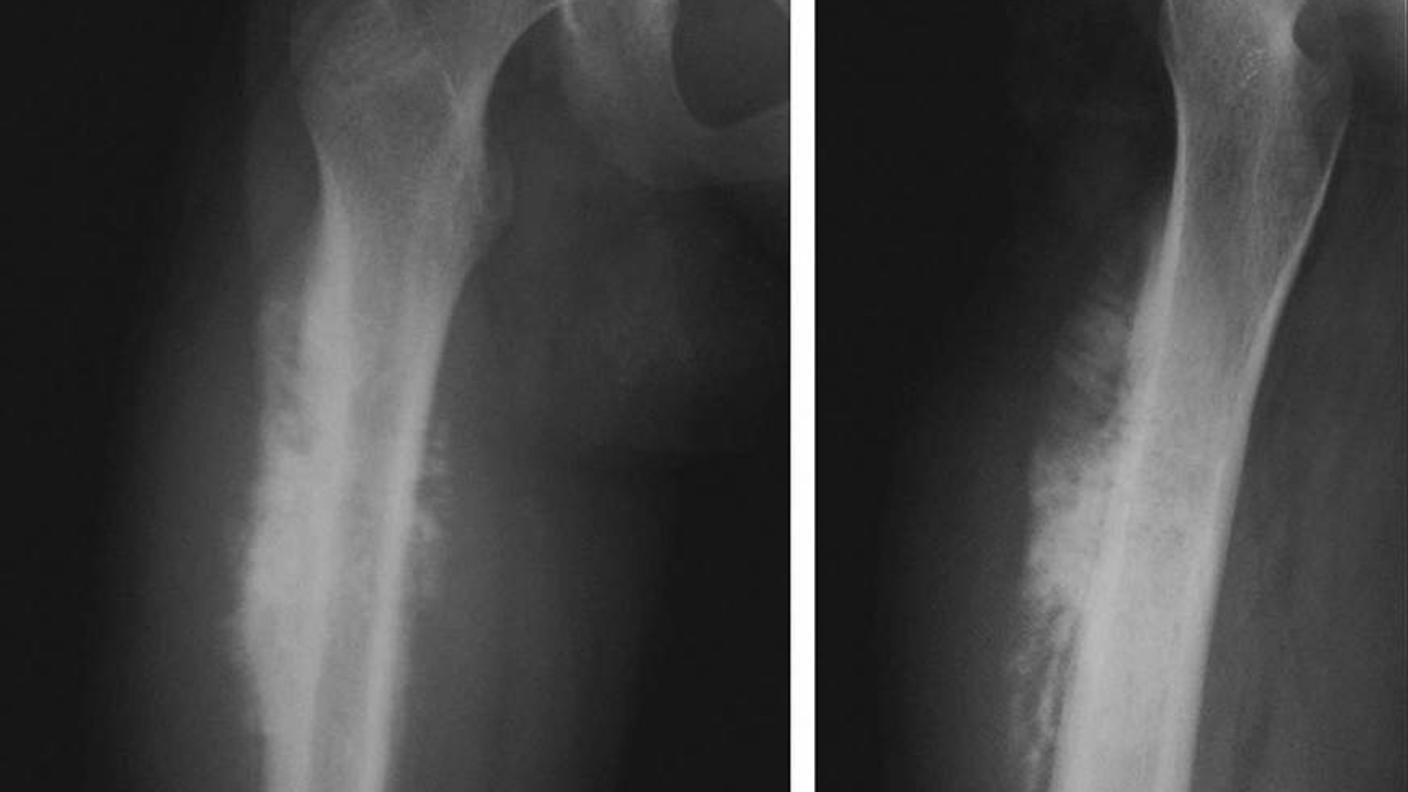Bone Cancer (Osteosarcoma)
DCEG investigators have a major interest in identifying germline genetic variants associated with susceptibility to osteosarcoma, a primary bone cancer of adolescents and young adults. We have conducted several studies to better understand the role of common and rare genetic variation in osteosarcoma risk and patient clinical outcomes.
Earlier studies identified single nucleotide polymorphisms in candidate genes associated with osteosarcoma. Later, we conducted the first genome-wide association studies of osteosarcoma susceptibility, of osteosarcoma metastasis at diagnosis, and of osteosarcoma overall survival. Investigators in the Clinical Genetics Branch identified a high frequency of rare deleterious variants in TP53 and other cancer-susceptibility genes in osteosarcoma patients, particularly the youngest.
Descriptive Epidemiology of Osteosarcoma via Population-Based Registries
Our registry studies of osteosarcoma have further refined the descriptive epidemiology of this disease. Additionally, through an international collaborative effort, we showed strong associations between height at diagnosis and birth weight with osteosarcoma.
Genetic Studies of Osteosarcoma
In collaboration with the Children’s Oncology Group and multiple international institutions, we continue to conduct genomic studies to expand our understanding of the genetic contribution to osteosarcoma etiology and clinical outcomes.
Osteosarcoma Study-Related Publications
For more information, contact Lisa Mirabello.
